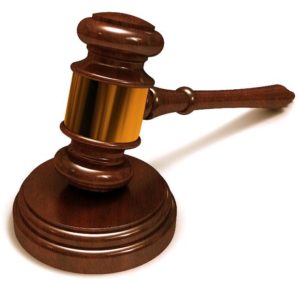A self-proclaimed tax agent has been found by the Taxation Review Authority (TRA) to have taken an unacceptable tax position and demonstrated a high level of disregard for the consequences of claiming GST refunds over a two and a half year period.
The taxpayer claimed a GST refund for five consecutive six month periods from March 2009 – March 2011, accumulating refunds of almost $10,000. The taxpayer argued he was eligible for the refunds as he was carrying on a taxable activity of “services to finance and investment” by (1) acting as a registered tax agent, (2) holding patent rights as a patentee, (3) devising inventions and patenting them, and (4) supplying services to two trusts.
The Commissioner denied the input tax deductions and deregistered the taxpayer on the basis that he was not conducting a taxable activity and was therefore not eligible to claim GST. The Commissioner argued that the conduct amounted to gross carelessness and therefore sought to impose shortfall penalties.
It is a fundamental rule that in order to claim GST you must engage in a taxable activity that satisfies the following four criteria:
- There is an activity;
- The activity is carried on continuously or regularly by a person;
- The activity involves, or is intended to involve, the supply of goods and services to another person; and
- The supply or intended supply of goods and services is for consideration.
On review of the facts, the TRA was highly critical of the taxpayers’ alleged taxable activities. In regard to (1) acting as a tax agent, the taxpayer asserted that he provided accounting services to many clients during the disputed GST periods. His evidence however, consisted of six invoices for two clients of small sums that could not be supported by bank statements. The TRA stated that even if they accepted that the taxpayer was acting as a tax agent, the taxpayer did not prove that the activity was being carried on “continuously” or “regularly”. The TRA described the activity as spasmodic at best and therefore dismissed the claim that this was a taxable activity.
Regarding (2) holding patent rights as a patentee, the patents the taxpayer referred to expired in 1994 and 2006 respectively, which is before the start of the first disputed GST period. The taxpayer saw his taxable activity as being a “continuous attempt to enforce the equities in the patents” and his position was not affected by the expiry of the two patents. The TRA had difficulty in following this assertion and so found that this activity did not meet the required threshold for taxable activity.
The taxpayer also failed to produce evidence to support his claim that (3) devising inventions or (4) supplying services to two trusts satisfied the criteria of a taxable activity. He produced no evidence of design work or time expended on inventing, no invoices or payment evidence nor any trust deeds or engagement agreements. The TRA found it unclear whether such a trust was even in existence and dismissed both of these claims.
The TRA consequently found that there was no nexus between a taxable activity and the input tax deductions. The taxpayer had taken an unacceptable tax position and demonstrated a high level of disregard for the consequences when he filed GST returns and claimed refunds for each of the periods in dispute. The taxpayers conduct was described as a “flagrant breach of the GST regime”.
All input tax deductions claimed were denied and shortfall penalties for gross carelessness were imposed in each of the GST periods in dispute.

